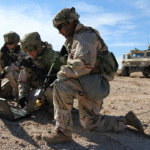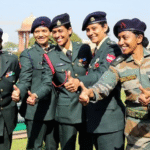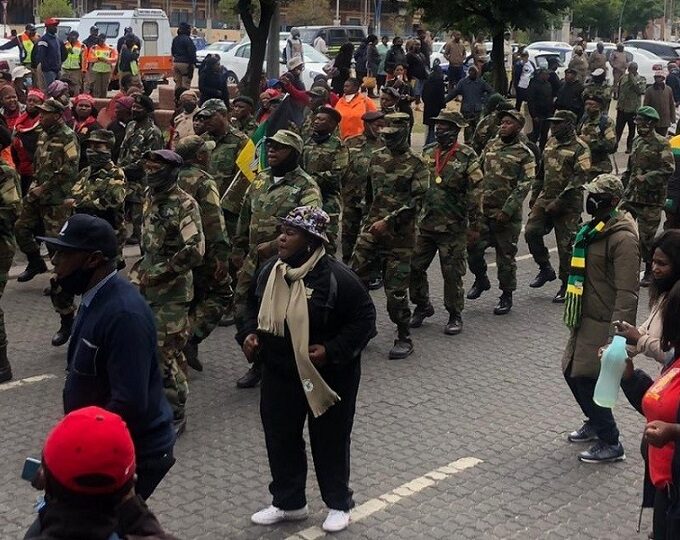Honouring Legacy: Military Museums and Memorials Across Africa
This article explores how African nations are preserving military heritage, the significance of such efforts, and the gaps that remain in giving veterans their rightful place in the continent’s historical consciousness.

Africa’s military history is rich, complex, and often untold. From pre-colonial warrior kingdoms and anti-colonial resistance to modern peacekeeping operations and counterinsurgency campaigns, African soldiers have long shaped the destiny of the continent. Yet, in many countries, their sacrifices remain under-recognised.
Across the continent, a quiet movement is growing—through military museums, memorial parks, and national remembrance days—to honour the legacy of African soldiers. These commemorative spaces are more than just tributes; they are instruments of national identity, reconciliation, education, and post-conflict healing.
This article explores how African nations are preserving military heritage, the significance of such efforts, and the gaps that remain in giving veterans their rightful place in the continent’s historical consciousness.
Why Commemoration Matters
Military memorials and museums serve multiple strategic and cultural purposes:
- Preserving historical memory for future generations
- Educating the public about national and regional security contributions
- Reinforcing unity and patriotism by celebrating collective sacrifice
- Providing therapeutic recognition for veterans and bereaved families
- Fostering reconciliation in post-conflict societies
In regions recovering from civil war or insurgency, memorialisation also functions as a peacebuilding tool. The African Union’s Silencing the Guns initiative has called for more “spaces of remembrance and dialogue” as part of post-conflict reconstruction.
Key Military Memorials and Museums in Africa
Several African nations have made significant efforts to institutionalise their military history:
South Africa – Ditsong National Museum of Military History (Johannesburg)
One of the continent’s most comprehensive military museums, it documents South Africa’s military involvement from the Anglo-Zulu wars to modern peacekeeping. It also houses artefacts from World Wars I & II, with a dedicated wing to the liberation armies (MK, APLA).
Ghana – Armed Forces Museum (Kumasi)
Housed in Fort Kumasi, this museum chronicles Ghanaian military history from the colonial Gold Coast Regiment to modern-day UN peacekeeping deployments.
Nigeria – National War Museum (Umuahia)
Established in 1985, the museum preserves the military history of Nigeria with a focus on the Biafra Civil War (1967–70). It includes exhibits on air, land, and sea warfare, as well as intelligence operations.
Rwanda – Campaign Against Genocide Museum (Kigali)
Located within the Rwandan Parliament complex, this museum honours the military campaign that halted the 1994 genocide, with a focus on the role of the Rwandan Patriotic Army.
Algeria – National Mujahideen Museum (Algiers)
A vast tribute to Algeria’s war of independence, it documents guerrilla strategies, the role of veterans, and the socio-political aftermath of war.
Ethiopia – Red Terror Martyrs Memorial Museum (Addis Ababa)
Though more focused on civilian victims of political violence, it highlights the role of soldiers and rebel fighters during the Derg regime and Ethiopian civil wars.
The Gaps in Commemoration
Despite notable examples, many African countries lack adequate structures to preserve and celebrate their military past. Common gaps include:
- Absence of national military museums in over 30 African countries
- Lack of digitised or mobile exhibits to reach rural populations
- Minimal investment in veteran-led historical documentation
- Neglect of African participation in global conflicts, especially World Wars
- Underrepresentation of women and minority ethnic combatants
According to the African Heritage and War Memory Index (2023), only 18 countries have active, state-supported military museums, and fewer than 10 have formalised remembrance days for veterans or military heroes.
Preserving Local and Liberation Histories
Many liberation movements and anti-colonial struggles are poorly represented in national museums. Veterans of movements such as SWAPO (Namibia), FRELIMO (Mozambique), and the Mau Mau (Kenya) have called for more inclusive historical recognition.
Examples of progress include:
- Mozambique’s Monument to the Heroes (Maputo)
- Kenya’s Dedan Kimathi Mausoleum and Mau Mau Trails Project
- Zimbabwe’s National Heroes Acre (Harare), honouring Chimurenga freedom fighters
However, these are often politically curated and risk excluding dissenting or marginalised voices from the historical narrative.
Digitising Memory: The Role of Technology
A few African states are leveraging technology to preserve military heritage:
- Rwanda’s interactive digital archives on the Genocide Campaign
- Ghana’s online platform documenting peacekeeping missions
- South Africa’s augmented reality apps linked to museum tours
Digitisation can democratise access, especially for youth and diasporic communities disconnected from their home country’s military history.
Policy Recommendations for Commemoration Reform
- National Commemoration Policies: Mandate remembrance days, educational integration, and funding for military history preservation.
- Veteran-Led Documentation Projects: Involve ex-servicemen and women in curating oral histories and archives.
- Military Education in Schools: Include basic military history and peacekeeping in civic curricula to build a sense of shared identity.
- Mobile Museums and Exhibitions: Extend access to military history through travelling exhibits, especially in rural or post-conflict zones.
- Memorial Maintenance Funds: Establish budgets to preserve existing monuments and avoid neglect or political erasure.
Memory as a Strategic Asset
Commemorating military service is not merely symbolic—it is strategic. It builds national cohesion, educates future generations, and offers veterans the recognition they deserve. In an era of fractured identities and post-conflict recovery, military museums and memorials are more than stone and glass—they are instruments of healing, learning, and unity.
Africa must move from selective memory to collective honour. Every fallen soldier, every peacekeeper, every freedom fighter has earned a place in the continent’s story—and it is our duty to preserve that legacy.
Military Commemoration Snapshot (2023–2024):
- African countries with national military museums: 18
- Countries with official Veteran Remembrance Days: 12
- % of military museums covering post-independence conflicts: 45%
- Countries with digitised military history archives: 7
- Number of African veterans interviewed for public archives (est.): <2,000
Recent Posts
Categories
- Air & Aerospace16
- Border Security15
- Civil Security4
- Civil Wars4
- Crisis5
- Cyber Security8
- Defense18
- Diplomacy19
- Entrepreneurship1
- Events5
- Global Security Watch6
- Industry8
- Land & Army8
- Leadership & Training5
- Military Aviation5
- Military History27
- Military Speeches1
- More1
- Naval & Maritime9
- Resources2
- Security12
- Special Forces1
- Systems And Technology9
- Tech6
- Uncategorized3
- UNSC1
- Veterans6
- Women in Defence9
Related Articles
VETERANS – PENSION REFORM AND THE WELFARE OF AFRICAN MILITARY VETERANS
Across Africa, military veterans embody the sacrifices made for national liberation and...
ByKing Richard Igimoh, Group Editor ALOOctober 29, 2025From Combat to Civil Service: Veterans Transitioning into National Leadership
Across Africa, a quiet but significant transformation is underway: former soldiers are...
Byadmag_adminJune 26, 2025Women Veterans in Africa: Breaking the Silence and Leading the Way
From frontline combat to strategic command, African women have served their nations...
Byadmag_adminJune 26, 2025Forgotten Heroes: The Untold Stories of African Peacekeeping Veterans
Africa has long been a crucial contributor to global peacekeeping, supplying tens...
Byadmag_adminJune 26, 2025












